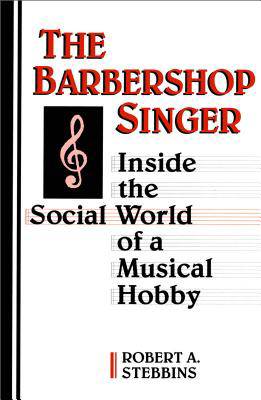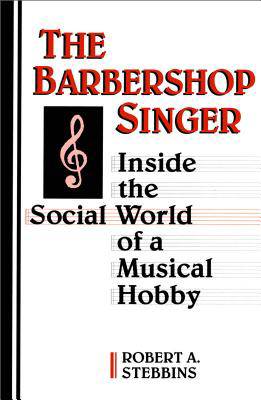
- Retrait gratuit dans votre magasin Club
- 7.000.000 titres dans notre catalogue
- Payer en toute sécurité
- Toujours un magasin près de chez vous
- Retrait gratuit dans votre magasin Club
- 7.000.000 titres dans notre catalogue
- Payer en toute sécurité
- Toujours un magasin près de chez vous
The Barbershop Singer
Inside the Social World of a Musical Hobby
Robert A StebbinsDescription
Barbershop singing is often dismissed by its critics as merely an enjoyable hobby. Though long popular with both its public and participants, it has been relatively neglected in the field of music studies. Robert A. Stebbins demonstrates that barbershop singing is an elaborate and complicated form of serious leisure that provides its participants with distinctive lifestyles. The Barbershop Singer is a unique case study of this significant musical genre, describing the social world of the barbershop singer and exploring its appeal for both male and female singers. Robert Stebbins traces the history of barbershop singing and compares and contrasts the worlds of jazz, classical music, and barbershop as serious leisure pursuits. Stebbins also reveals its costs and rewards, its complex organizational structures, the social marginality felt by its more dedicated participants, and the main problems facing the art today.
Although barbershop singing is clearly a circumscribed social world, understanding how it works expands current knowledge of the variant forms of social participation available to citizens of the modern world. The Barbershop Singer will be of interest to sociologists as well as those involved in the world of barbershop.
Spécifications
Parties prenantes
- Auteur(s) :
- Editeur:
Contenu
- Nombre de pages :
- 144
- Langue:
- Anglais
Caractéristiques
- EAN:
- 9780802078292
- Date de parution :
- 03-05-96
- Format:
- Livre broché
- Format numérique:
- Trade paperback (VS)
- Dimensions :
- 153 mm x 228 mm
- Poids :
- 235 g







